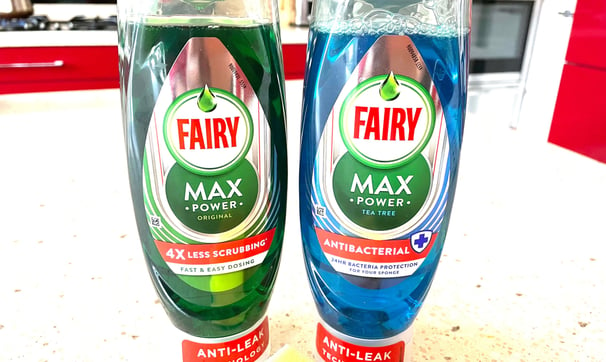Fairy Liquid Health Warning: What UK Families Need to Know
CAREER & BUSINESSCOMMUNITYFEATURED


Image Credit: Rejoice Denhere/Pixabay
UK households are being warned about health and environmental risks linked to Fairy washing-up liquid. For my family, this doesn’t come as a surprise. We stopped using it years ago after my daughter had a bad reaction. We’ve since switched to Elbow Grease, and haven’t looked back.
So why are these warnings only now making headlines? And what does this mean for one of the UK’s most trusted household brands as well as for the rest of us who use these products every day?
What’s Going On With Fairy Liquid?
Fairy has been a kitchen staple in the UK for decades. It’s known for cutting through grease and being “kind to hands.” But recent reports suggest that some of its ingredients may not be as harmless as people thought.
Some of the chemicals raising concern include:
Sodium laureth sulfate – a foaming agent that can cause skin irritation
Lauramine oxide – effective at cleaning, but also an irritant
Limonene and geraniol – fragrances that are known allergens
Preservatives like methylisothiazolinone (MI) – increasingly linked to allergic reactions
Some studies and consumer reports also mention that heating the product with hot water could vaporize certain chemicals, making it easier to inhale them and potentially irritating to people with asthma or sensitive airways.
Then there’s the environmental impact. The surfactants in these liquids are often derived from fossil fuels and don’t break down easily in waterways, which can disrupt aquatic life.
Why Are Warnings Only Coming Out Now?
This is what many are wondering, especially those of us who had issues with Fairy years ago.
Here are a few reasons why this might be happening now:
New labeling laws: UK and EU regulations have shifted. Bottles now require clearer hazard symbols and safety info — making the risks more visible than before.
Consumer stories gaining attention: Several media outlets have reported on severe reactions, including burns from laundry pods and allergic flare-ups from the liquid.
Environmental pressure: Campaigners are pushing back on “greenwashing” and demanding transparency from big brands.
It was always in the fine print: Safety data sheets have long listed these concerns — they just weren’t highlighted to everyday shoppers.
What This Means for Procter & Gamble (P&G)
Fairy is owned by Procter & Gamble, a global household name. This kind of scrutiny isn’t good for business:
Brand trust may take a hit. If people start to question the safety of Fairy, they may rethink using other P&G products.
Sales could drop if more families switch to “safer” or eco-friendlier options.
They may need to reformulate or relabel in response to public pressure or legal action.
So far, there hasn’t been a big public response from P&G — but that may change if the backlash continues.
What This Means for Us
As consumers, this news can feel unsettling. We rely on these products daily — for ourselves, our kids, our homes. Here’s what people are dealing with:
Health concerns: If you’ve had mystery rashes or itchy hands, this might explain a few things.
The search for alternatives: More people are checking labels and switching to brands like Ecover, Bio-D, or even supermarket own-brand versions.
Price worries: Cleaner or gentler products can cost more, and that’s tough in the middle of a cost-of-living crisis.
Our family’s switch to Elbow Grease happened after my daughter’s skin reacted badly to Fairy. It wasn’t a protest but survival. It didn’t make sense to keep using something that clearly wasn’t right for her.
What We Can Learn
There are some big takeaways here:
Speak up early: If a product causes a reaction, report it. Your voice adds to the data that could protect others.
Look past the marketing: “Gentle” and “trusted” are nice words, but check the ingredients.
Push for clearer labels: Everyone should know what they’re bringing into their homes.
Don’t wait for a recall: If something’s not working for your body, stop using it — even if it’s “safe for most people.”
Regulators need to do better: If known irritants are still on the shelf, why aren’t consumers better informed?
Final Thoughts
This isn’t just about Fairy Liquid. It’s about how we trust brands, how we expect companies to be honest with us, and how long it takes for health risks to be taken seriously.
The more we ask questions and share our experiences, the harder it becomes for companies to ignore them. And that’s a good thing — not just for consumers, but for accountability across the board.
Sources:
